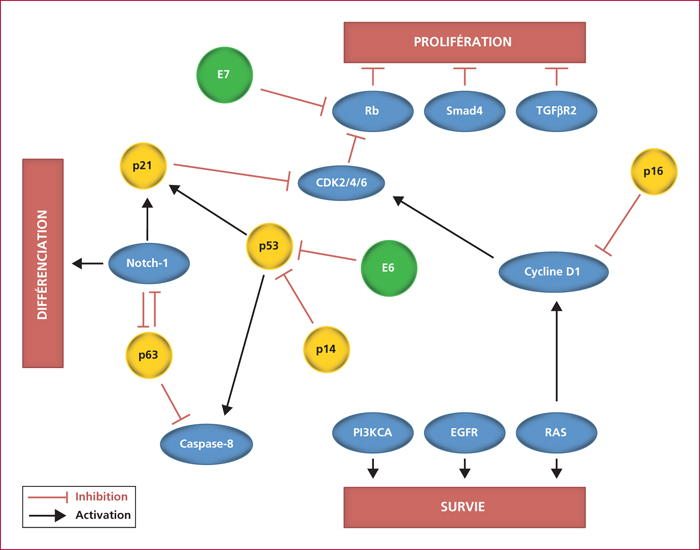Hépato-Gastro & Oncologie Digestive
MENUAnal squamous cell carcinoma: Medical treatment of unresectable advanced, relapsed and metastatic disease Volume 22, issue 3, Mars 2015
- Key words: cancer, anal canal, relapse, metastasis, chemotherapy, radiotherapy
- DOI : 10.1684/hpg.2015.1127
- Page(s) : 209-16
- Published in: 2015
Squamous cell carcinomas of the anal canal are usually diagnosed at a localized stage. Advanced forms are relatively rare, most of those resulting from inoperable local relapse or metachronous metastases. The prognosis is pejorative but depends on clinical presentation. Systemic chemotherapy has a key role in the treatment. Combination of 5-FU and CDDP is generally considered as the standard of care, especially in patients initially treated by radiochemotherapy with the association of 5-FU and MMC. Small retrospective studies suggest that taxanes, administered either alone or in combination with other cytotoxic drugs, may induce favorable results. These combinations should be further explored. Stereotactic irradiation and intra-arterial chemotherapy are one of modalities to treat pelvic recurrences which should be also further evaluated. No “biotherapy” is currently recommended. However, molecular alterations associated with these tumors indicate that there is a rational for the evaluation of agents targeting the EGF receptor and the PI3KCA/mTor pathway. The administration of several lines of chemotherapy should always be considered in selected patients and combined approach including radiotherapy and/or surgery may be discussed in patients with favorable response to systemic chemotherapy to obtain long term survival.


